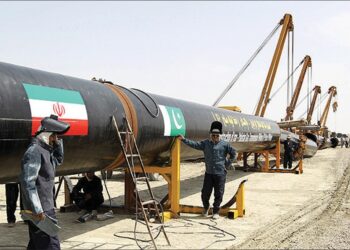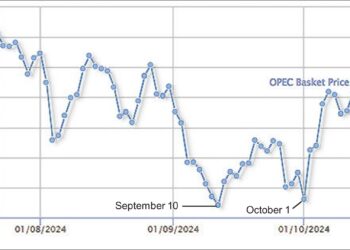July 11, 2014
![]() While many news reports in recent months talk of Western business firms rushing to Tehran to line up business with the Islamic Republic once sanctions are lifted, the bigger story is really about the businesses in areas where sanctions have been lifted that are still declining to contract with Tehran.
While many news reports in recent months talk of Western business firms rushing to Tehran to line up business with the Islamic Republic once sanctions are lifted, the bigger story is really about the businesses in areas where sanctions have been lifted that are still declining to contract with Tehran.
For example, France pressed for automotive sanctions to be lifted for the six-month duration of the interim deal to help Renault and Peugeot. They were lifted, and the two firms rushed to Tehran. But the firms have sold Iran next to nothing. Industry sources have said both companies decided not to invest capital to resume business that might last a mere six months and then be shut off again if no long-term agreement were reached.
Reuters now reports that HSBC, the giant London-based bank, is refusing to process even humanitarian transactions that were legitimate and un-sanctioned even before the interim nuclear deal was reached last November.
While HSBC has declined to explain its reluctance, some think the firm doesn’t trust Iran and fears it might try to hide some illicit nuclear buys as licit medical purchases. And HSBC fears it will be tarred if such transactions are later revealed.
HSBC is the modern name of the firm founded in the 19th Century as the Hongkong and Shanghai Banking Corp.
“HSBC, like other banks, is increasingly worried about falling foul of any sanctions oversights. It is just not worth the risks, especially in this climate,” one banking official told Reuters.
European and US trade sources both told Reuters that in recent weeks HSBC has frozen some transactions for approved goods.
“My direct experience is that they have blocked payments going into and out of Iran,” a European trade source said.
HSBC said it continued to consider humanitarian payments involving sanctioned countries “on a case-by-case basis.”
“This review process can be particularly challenging and therefore can take time to conclude. Our policy only requires the freezing of these payments where required under applicable laws and regulations,” HSBC said in a statement issued in response to Reuters’ questions. HSBC declined to comment on whether it had received any overtures from Iran.
A US-based trade source said that payments with Iran via HSBC had not gone through in recent weeks.
“HSBC seems to have stopped processing financial transactions for allowable humanitarian trade,” the source said, adding that this could have wider implications.
Three Iranian government officials said HSBC had stopped processing payments, and that Tehran was trying to resolve the issue. “We are in talks to solve the problem,” one told Reuters.
Iran’s Central Bank Governor Valiollah Seif told Reuters: “We never had any such [humanitarian/food commodities finance] interaction with HSBC.”
A Western intelligence source said, “It appears that HSBC is very concerned by the apparent lack of transparency in Iranian activity”—in other words, that it fears Iran’s listed purchases of humanitarian goods might not really be humanitarian goods.
“Large European banks are to a large extent making it a matter of policy to manage risk and operate more cautiously than is actually required by regulations in order to avoid prohibited activity.”
Doug Maag, US-based senior counsel with law firm Clyde & Co., told Reuters, “Banks are reluctant to become involved in such transactions, because, if they process payments on non-compliant transactions [by mistake], the banks themselves can be subject to sanctions.”
In December 2012, HSBC was fined $1.92 billion by US regulators for various violations including knowingly doing illegal business with Iran and money laundering in Mexico. The bank has ramped up internal compliance and in 2012 appointed Stuart Levey, former US Treasury undersecretary for terrorism and financial intelligence, as the bank’s chief legal officer.
William Arnall-Culliford, team leader of the Iran department at Britain’s Foreign Office, told Reuters the intention of sanctions was not to harm ordinary Iranians or humanitarian transactions, but the government did not offer an “interpretation service on the legal rules in the EU.”
“What we won’t do is tell people whether their proposed activities are in line with sanctions,” he told an Iran business seminar in London earlier this month. That leaves businesses out on a limb.
“[Where there are no legal obstacles], issues dealing with banks are commercial issues. It is not the policy of government to intervene in commercial decisions.”
Arnall-Culliford said that where an activity was not prohibited under sanctions, “we would not expect the US to issue letters of comfort” to EU companies. That is, it won’t say any particular transaction is okay, thus giving cover to a bank if that transaction later turns out to be fraudulent.
“The government’s policy is not to encourage trade with Iran. There is no support in trade disputes,” he said.
A US Treasury spokeswoman said Washington had worked hard with international partners “to support and facilitate humanitarian trade with Iran. Through our private sector outreach and in discussions with other governments, we make clear that transactions related to humanitarian trade with Iran are permissible,” she said.
“In addition, as part of our commitment to implementing the Joint Plan of Action, we helped establish financial channels to facilitate humanitarian trade with Iran and those channels have been actively working.” But that doesn’t say the United States won’t prosecute if one of those transactions later turns out to include uranium rather than penicillin.

















